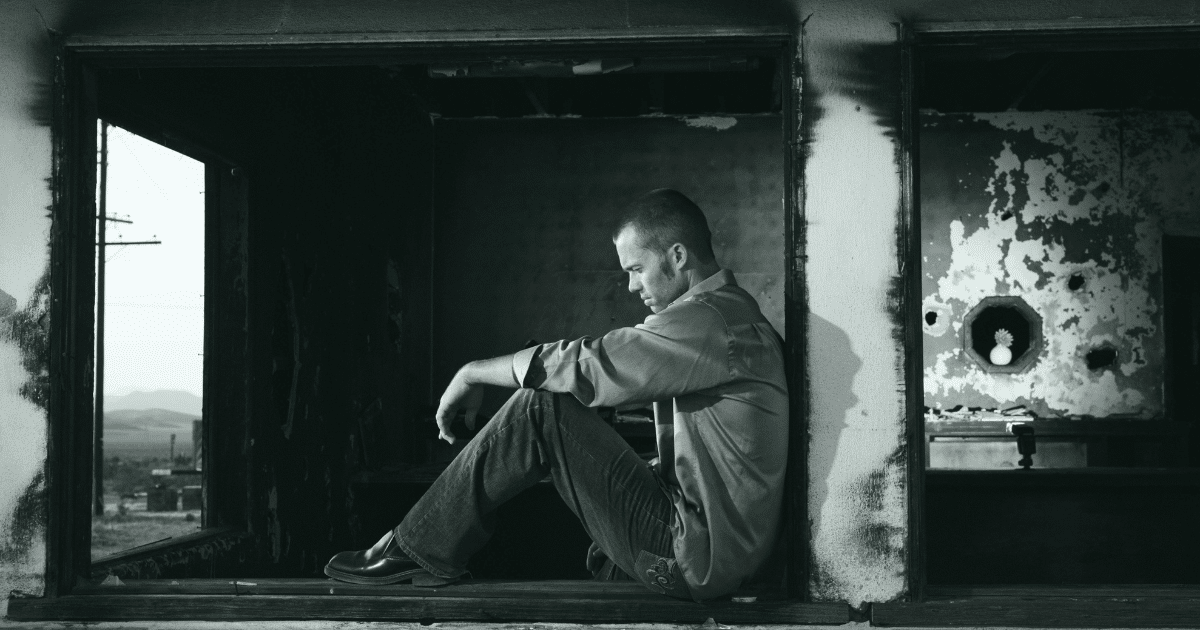Cocaine may promise euphoria, energy, and confidence, but the crash that follows can be brutal. Among its many mental health consequences, cocaine-induced anxiety is one of the most jarring and distressing. It’s the uneasy tremble beneath the high, the panic that creeps in after the last line fades. Anxiety is not merely a consequence of using cocaine to many people, it is a preoccupying state that haunts people even after the cocaine effects have subsided.
There exists a complex relationship between cocaine and anxiety, a relationship whose roots are in the neurochemical disorder and the emotional rubble that continues to exist even after the afterglow wears off. It may result in users having their hearts racing, being overcome by irrational fears, or even being in the clutches of a full-blown panic.
Cocaine-Induced Anxiety: Understanding and Managing the Effects
Cocaine induced anxiety is not some passing concern or some light-headedness. It is sometimes bitter, chaotic, and emotionally stalling. Learning about the relationship between this stimulant and the feeling of anxiety, as well as how to cope with its effects, would be instrumental in the process of breaking the chain of fear, panic, and addiction.
What Is Cocaine-Induced Anxiety?
Cocaine-induced anxiety is the uncontrolled fear, restless uneasiness, and emotional distress that a person usually develops during or after using cocaine. It falls under the substance-induced anxiety disorder, an illness that has its causes in the direct symptoms emanating from drug interaction.
The type of anxiety can:
- Happens during active use (due to overstimulation of the nervous system)
- Intensify during the crash or comedown
- Persist during withdrawal and long into recovery
Key Symptoms of Cocaine-Induced Anxiety
People experiencing stimulant-induced anxiety from cocaine may face:
- Racing thoughts or mental agitation
- Restlessness or inability to stay still
- Hypervigilance and feeling constantly “on edge”
- Paranoia or irrational fears about being watched or harmed
Silicon Valley Recovery Center
The Connection Between Cocaine Use and Mental Health Effects
Cocaine is not only a stimulating drug, but it also takes over the brain. Its high is euphoric, but it costs heavily to one’s sanity. Cocaine gives short-term highs and extensive emotional lows since it triggers neurotransmitters such as dopamine, serotonin, and norepinephrine. In the long run, such chemical pandemonium changes the way the brain functions and may cause permanent mental health problems.
To learn more about the interconnection between cocaine use and mental health, it will be helpful to consider the comparison between common effects:
| Mental Health Effect | How Cocaine Contributes | Short-Term Symptoms | Long-Term Impact |
| Anxiety Disorders | Overstimulates the central nervous system, increases cortisol and adrenaline | Racing thoughts, panic attacks, paranoia | Chronic anxiety, phobias, generalized anxiety disorder (GAD) |
| Depression | Depletes dopamine and serotonin after an initial high | Crash, sadness, emotional withdrawal | Persistent depressive disorder, suicidal thoughts |
| Psychosis / Cocaine Paranoia | High doses and long-term use distort perception and thinking | Delusions, hallucinations, and fear of being watched | Paranoid psychosis, schizophrenia-like symptoms |
| Mood Swings / Bipolar Symptoms | Dopamine spikes followed by crashes mimic manic-depressive cycles | Euphoric highs and irritable lows | Increased risk of bipolar-like behavior |
Recognizing Cocaine Withdrawal Symptoms
Cocaine addiction does not always manifest itself physically as seriously as the withdrawal of substances such as opioids or alcohol, but the psychological symptoms are devastating. Whenever a person abstains after a cocaine-intensive phase of usage, the brain, which has lost all of its dopamine and is stimulated to its limits, drags back. This is frequently referred to as the crack, but this may only be a start to the withdrawals, which may extend for a long, long time.
The knowledge that enables one to understand the effects of cocaine withdrawal is needed to encourage awareness and prevent relapses in terminology. Most of these symptoms are confused with different mental problems, such as anxiety and depression.

The typical cocaine withdrawal symptoms include the following:
- Fatigue and exhaustion
- Severe depression or mood swings
- Increased anxiety
- Intense cravings
- Sleep disturbances
- Cognitive fog
- Loss of pleasure (anhedonia)
- Suicidal thoughts
Substance-Induced Anxiety Disorder and Its Link to Cocaine
The prevalence of all anxiety disorders is not related to trauma and stress, and is also genetically determined – direct substances cause some. Substance-induced anxiety disorder is one such diagnosis because the only thing that drives anxiety symptom arousal is a drug or being under the influence of a drug, or withdrawal. One of the most widespread culprits is the use of cocaine.
The condition is similar to other conditions like generalized anxiety or panic disorder, but the causative factors are incomparable. The anxiety may not only occur in the crash, but also when one is not on the cocaine, as the drug affects neurotransmitter systems in the brain.
This is the way that cocaine causes such substance-induced anxiety:
- Neurochemical imbalance
- Overactivation of the amygdala
- Withdrawal-related hypersensitivity
- Sleep disruption
- Paranoia morphing into chronic anxiety
Silicon Valley Recovery Center
Cocaine Paranoia and Its Impact on Mental Well-being
One of the most potent and scary psychological effects of cocaine use is called Paranoia. It insidiously crawls into your mind unnoticed, usually like hyper-awareness, or in other words, edgy caution, and before you know it, you find yourself in the depths of delusional behavior. Paranoia is not a temporary side effect to many users – instead, it is a lasting mental health problem that severely interferes with emotional equilibrium and routine life.
What Is Cocaine-Induced Paranoia?
Cocaine paranoia features delirious suspicion of people, fear of being observed, stalked, or injured, and paranoia in general. Paranoia is directly related to overactivating the brain’s dopamine system, in terms of the brain parts involved in the perception of threat.
The most critical indicators of paranoia caused by cocaine are:
- Believing others are plotting or speaking negatively about them
- Feeling constantly watched or tracked
- Interpreting neutral behaviors (like laughter or texting) as suspicious
- Isolating due to distrust
- Aggressive or defensive responses without a clear cause
Cocaine and Panic Attacks: What You Need to Know
Cocaine and panic attacks often go hand in hand, an explosive pairing that can be emotionally and physically overwhelming. The stimulant nature of cocaine spikes heart rate, blood pressure, and sensory input, setting the perfect stage for a panic attack. For users already prone to anxiety, cocaine can act like gasoline on fire.
Find Relief from Cocaine-Induced Anxiety with Support from Silicon Valley Recovery
Recovery isn’t just about quitting a substance – it’s about healing the mind, regaining control, and rediscovering peace. Cocaine-induced anxiety can feel overwhelming, but you don’t have to face it alone. At Silicon Valley Recovery, compassionate, evidence-based treatment is available to help you or your loved one break free from the grip of addiction and anxiety.
Whether you’re struggling with withdrawal, managing persistent panic, or navigating paranoia, our team is here to support your journey every step of the way. With dual diagnosis care, personalized treatment plans, and 24/7 support, we’ll help you rebuild from the inside out.
Contact Silicon Valley Recovery today to speak with a specialist and begin the path to lasting healing.

Silicon Valley Recovery Center
FAQs
What are the primary causes and symptoms of cocaine-induced anxiety?
Overstimulation of the nervous system, especially the wave of dopamine and norepinephrine in the brain, is the result of cocaine-induced anxiety. Restlessness, racing thoughts, paranoia, panic attacks, and intensified fear are the symptoms.
How does cocaine use affect mental health, particularly in terms of anxiety?
Cocaine has a lot of effects on emotional regulation. When cocaine is used, it manipulates the chemistry of the brain and tends to cause or exacerbate the feeling of anxiety. They may affect instantaneously when in use or over time, leading to the development of chronic anxiety disorders as well as panic attacks.
What role does stimulant-induced anxiety play in the effects of cocaine use?
An important psychological side effect of cocaine is stimulant-induced anxiety when it is used repeatedly or in higher doses. It aggravates stress reactions and may result in generalized anxiety that resembles other health disorders.
How can cocaine-induced paranoia impact an individual’s mental well-being?
Cocaine use results in paranoia; this makes individuals mistrust other people, avoid social networks, and become emotional. It destroys engagement with the world on a mental level, and in the long run, it destroys the sanity of the mind, as any interaction is scary and may be a cause of psychosis.
What are effective strategies for managing anxiety caused by cocaine use?
These tools are cognitive behavioral therapy (CBT), mindfulness, adequate nutrition and rest, and the help of addiction specialists. Severe and long-standing recovery may necessitate dual diagnosis treatment, which includes both mental health and addiction.


